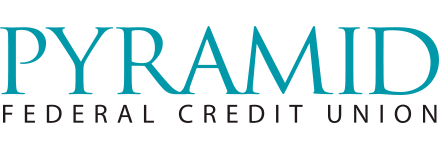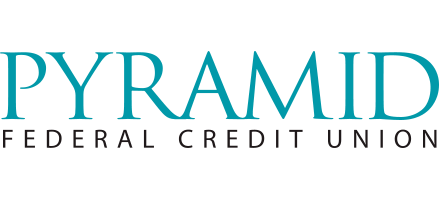How To Break the Debt Spiral
If you’re living paycheck to paycheck, don’t feel alone. A recent NPR poll* found that 46% of Americans said they're having "serious financial problems" as a result of job losses and financial hardships created by the prolonged coronavirus pandemic. Nearly one out of three respondents had used up all or most of their savings.

While making and spending money is a part of everyday financial life, finding an effective balance between income and expenses is key to a successful financial future. In the best of times, your monthly budget should provide enough income to cover your expenses and to add to your savings. During a major financial crisis it can feel overwhelming.
“Budgeting is a stressful task for most, even without the added pressure of a pandemic. Understanding where you spend your money is the first step to taking back control of your finances and relieving some of that stress,” according to Dustin Powell, Executive Vice President at Pyramid.
There are some things you can do to get a handle on your finances.
1- Review Your Spending Habits
Powell recommends that you review your statements online or print out an account history to see where you've spent money over the past month.
“Once you start to see where your money goes, you'll probably find some quick and easy ways to save a little here and there. In today's environment, every little bit helps,” he added.
Making changes to your expenses is where you’ll likely show immediate impacts. After you’ve logged all of your expenses, do an honest assessment of which are “wants” vs. “needs.” Some things like housing, utilities, transportation and food are fairly fixed. But eating out frequently and online shopping or impulse purchases for things you really don’t need can easily derail your efforts to stay on budget.
2- Look at Your Outstanding Debt
If you carry balances on credit cards, pay more than the minimum payment amounts. Otherwise, you will end up carrying those balances for years and will pay hundreds (or more) dollars in interest and finance charges. Consider 0% balance transfer offers to move your debt to lower-rate options, but be careful to pay attention to any fees or restrictions which could end up costing your more.
If you have other loans like auto loans or mortgages, refinancing to lower monthly payments could have a positive impact on your budget. Many lenders offer deferred payment programs, extending or modifying existing loans, to give borrowers more time to pay.
If you rent a home or apartment and your lease is coming due, check to see if there are lower cost housing options in your area to help you save. Housing expenses can make up a big portion of your budget, but shouldn’t be more than 30% of your monthly income.
3- Set a Budget and Commit to Following It
With this fresh look at your finances, create a plan to live within your means. Spend only on essentials for a period of time. Avoid adding to your debt by using credit cards or borrowing from other lines of credit and only make payments from available funds if possible.
Be sure to pay your bills on time. Set up automatic payments each month or use bill pay services to schedule bill payments making sure to avoid late fees or overdraft charges.
Use our Budget Calculator to walk you step-by-step through the process of creating a budget that fits your lifestyle.
4- Don’t Forget to Save
Treat saving like a monthly expense. Include it in your budget and commit to it. Set a goal of having a minimum of $1,000 in an Emergency Fund to help offset the unexpected. If you can’t save 5% of your monthly income, you’re probably living beyond your means.
Pyramid’s GOAL Share Certificate is a perfect starting point for those wanting to build a savings foundation. With only a $25 initial deposit, this unique certificate pays members above-market dividends and includes the flexibility of no-penalty withdrawals. Click here to learn more about the GOAL Share Certificate.
5- Consider New Sources of Income
If your schedule and lifestyle will allow you to take on a second job or gig work, increasing your income can help with paying down your debt or increasing your savings faster.
The bottom line: If you don’t have enough income, or if you spend more than you have, you will continue struggling with debt.
Pyramid offers a number of free resources to empower members to learn about finances and money management. Visit our Online Financial Wellness Library and explore a variety of articles and financial tools. Or learn about finances on-the-go through our Zogo Mobile App, and get rewarded to learn.
*The Impact of Coronavirus on Households Across America, is based on a five-part polling series conducted for NPR, the Robert Wood Johnson Foundation, and the Harvard T.H. Chan School of Public Health. September 2020.




